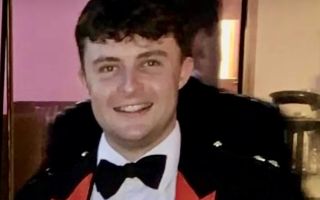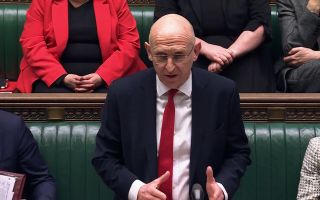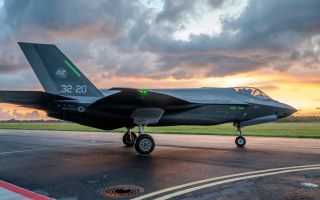Exclusive: Inside British Army's mission in Iraq helping to defeat IS
The 1st Battalion, The Royal Yorkshire Regiment – to use their new and proper title – are a proud bunch of soldiers.
Their cap badge is associated with more than 330 years of history, the latest chapter of which is being written by personnel from Burma Company, who are currently deployed on operations in northern Iraq.
Some might be surprised to learn that the British Army is active on the ground in Iraq 20 years on from the start of Operation Telic.
But the situation today is different. This operation is called Shader, and UK troops – alongside dozens of other nations – are in the region at the strict invitation of the Kurdish-Iraqi government.
But why is the British Army there, and what exactly is it doing?
Forces News was granted exclusive access to embed with the soldiers of 1 Royal Yorks as they conducted operations in the region around Erbil, the capital of the region known as Kurdistan.
In doing so, we are the first media organisation to be provided access to UK personnel in theatre for almost five years.
And what our team witnessed there was something notable.
Firstly, 1 Royal Yorks is conducting non-stereotypical tasks. The proper phrase for what they do is 'force protection', but that does not quite cover it.
Those who have deployed on operations previously will likely associate the term with something to do with base security or the performing of perimeter patrols around a large fence. But that's not what these soldiers are doing.
In fact, they are being used to protect high-ranking officers and officials who frequently go out into Iraq to conduct meetings. When they do so, an almost daily occurrence, it is these British infantrymen – 1 Royal Yorks – who provide their security.
They do so heavily armed and highly trained. It could be said they are an extremely prepared and capable group of bodyguards, a sort of Brecon security detail.
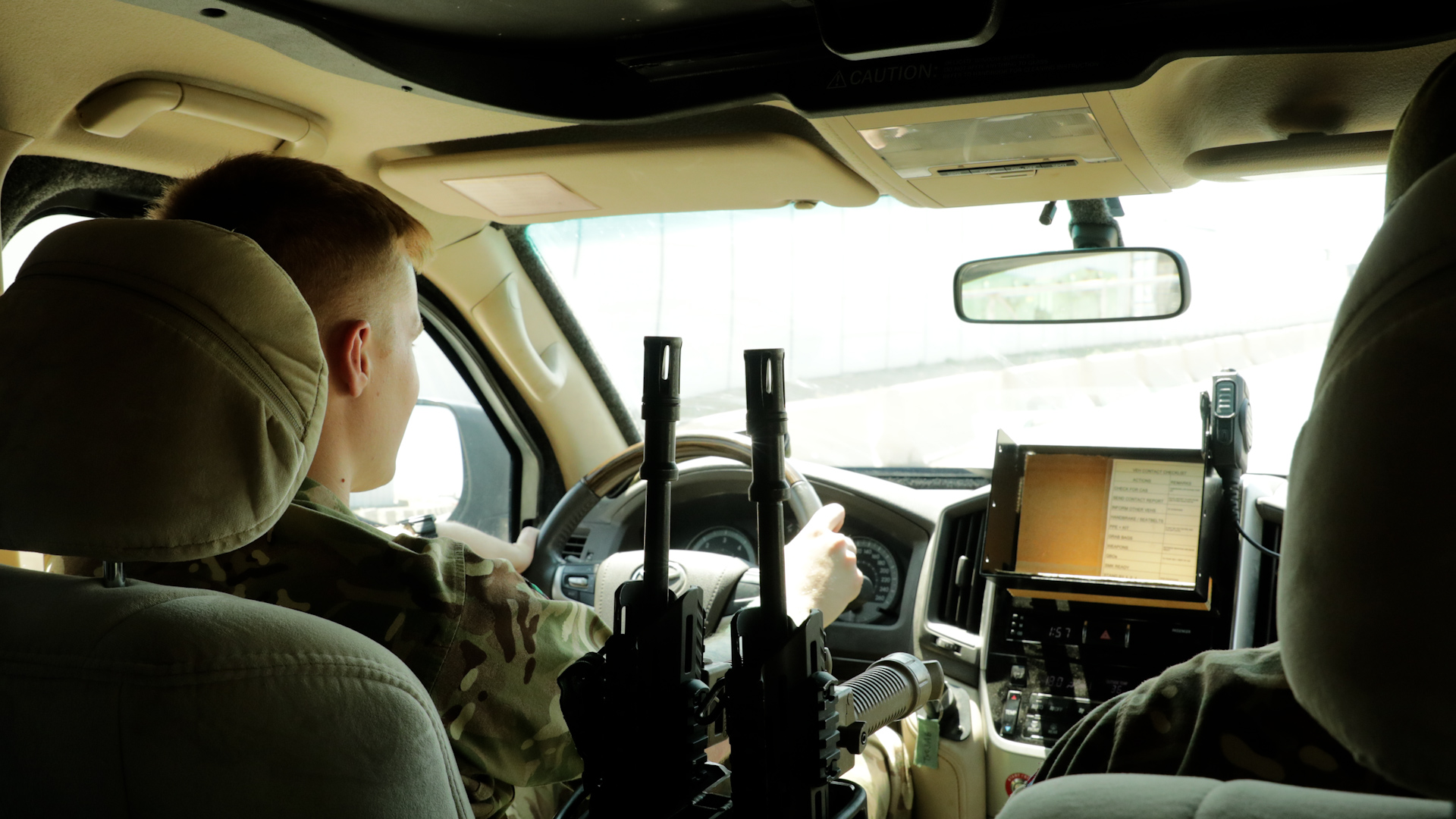
Secondly, when the soldiers deploy on the ground, they do so in an environment that has the potential of turning nasty at a moment's notice.
The geopolitical situation in the region was explained as similar to post-Good Friday Northern Ireland.
Daesh, or so-called Islamic State, dealt in sectarianism and violence which ultimately aimed to establish new borders.
Although Daesh failed, it is within their former territory the soldiers of 1 Royal Yorks are frequently operating, and malign factors of the organisation are known to still exist across Syria and Northern Iraq today.
Lieutenant Ritchie, a platoon commander within Burma company, spoke to Forces News moments after returning from one such tasking.
He said: "In my multiple, I've got the drive teams, which is a commander and a driver, and on the other side of that there's the dismount teams, which is the force protection element.
"The driver is the master of his vehicle. The commander is his second set of eyes on the road, responsible for navigation and keeping comms with the rest of the vehicles on the patrol and back to base.
"The dismount team are providing any extra information they can in the background. They are looking out for any potential threats, any potential information they can gather."
The task Lt Ritchie's 'multiple' had just returned from involved escorting a senior Dutch military officer who needed to travel into Erbil to meet with commanders of the Kurdish military – known as the Peshmerga.
Private Clarkson, 20, was on the patrol. Forces News spoke to him about life in Iraq as a young soldier.
"It's not what I expected at all. Compared to life back in the UK, it's completely different," he said.
"The base is much more homely than I thought it would be and integrating with the lads and all; everyone's together and it's gone really well so far."
Another unmissable characteristic of the activities the soldiers are carrying out is the equipment they depend on in the delivery of those tasks.
Notably, gone are the vehicles one might normally associate with an armoured infantry battalion. Instead, personnel conduct their work in up-armoured versions of the Toyota Land Cruiser, known as Civilian Armoured Vehicles.
And, offering a touch of class, or, as it was described by a soldier on the ground, a touch of "Britishness", the troops even hold the doors open on their vehicles so that the VIP in the back can get in and out with ease. It's all part of the service.
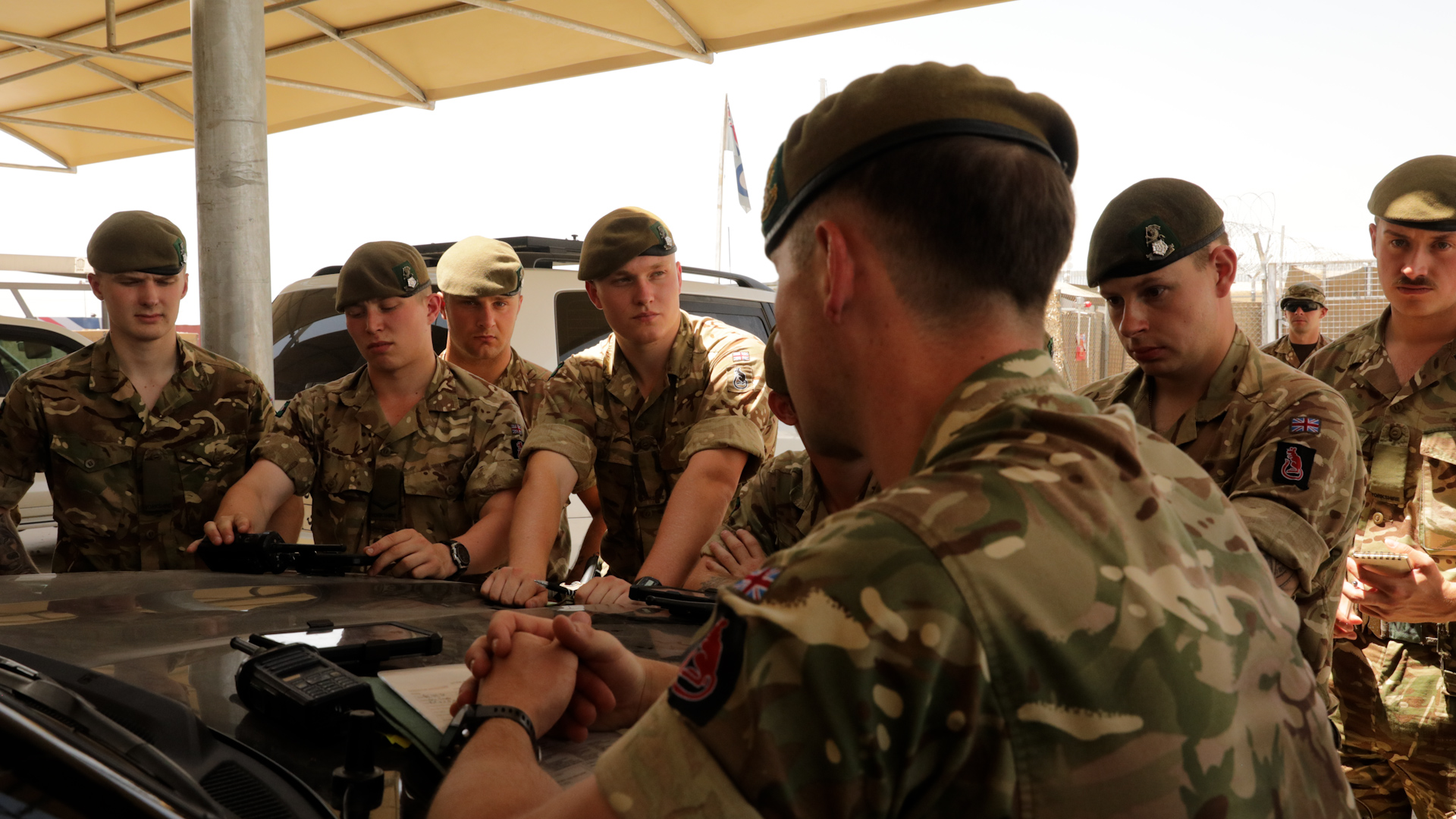
Home for the men and women of 1 Royal Yorks and their attached personnel is Camp Zorbash. It's a base within a base, as it sits within a larger military compound, complete with its own airstrip.
Security is intensely high, as you would expect, and frequently, moving around the camp, reminders exist of the types of danger the soldiers can face. Heavily fortified bomb shelters, for example, which are numerous, are designed to offer the troops protection from real threats, such as indirect fire.
But, as was explained by our hosts in the camp, a serious consideration the defence planners must mitigate against is the use of 'kamikaze' type UAVs, also known as bomb drones. It's a very modern worry for officials responsible for keeping everybody safe.
Of course, the soldiers are not expected to be on patrol continuously. In the evening time, once work is done for the day, an array of welfare activities is provided to keep everybody busy.
This includes a 'welfare tent' complete with multiple game consoles, a huge TV, a dart board and a library. There is a covered sitting area providing welcome shade – the scene of serious table tennis contests and even the occasional barbecue, such as the one held to mark Armed Forces Day.
But for gym-goers, the real action takes place once the temperature drops in a large purpose-built field gym, constructed using the old-type field tents many will remember from exercises in colder climates.
It's here a considerable mass of 1 Royal Yorks can be found nightly, pumping iron, contributing to the collective 'Op Massive' experience.
And naturally, wherever US military personnel can be found, an abundance of welfare facilities cannot be far away. British soldiers and, indeed, any others working with the coalition, can enjoy these facilities too.
Whether it be the American cookhouse – which has everything one could desire in terms of culinary tastes, or the sporadic set of shopping outlets where soldiers can spend all the extra money they are earning while being deployed.
The most popular item at the tills – a spoof collection of 'Patagonia' tee-shirts that are instead branded 'Kurdagonia' – are selling by the hundreds.
With operational tours in dangerous theatres being far less common than they were a generation of soldiers ago, 1 Royal Yorks will rightly see their time in Iraq as significant. Not just in terms of the uniqueness of the role they are being asked to conduct, but because for many of them, this is their first tour 'in harm's way'.
And it is, for this reason, Op Shader is a deployment that brings with it a campaign medal.
The awarding of that medal, alongside getting everybody home safely, will be a matter of serious pride on the faces of the soldiers of this already proud battalion, when they return home in early 2024.
Until then, their home is Erbil.



